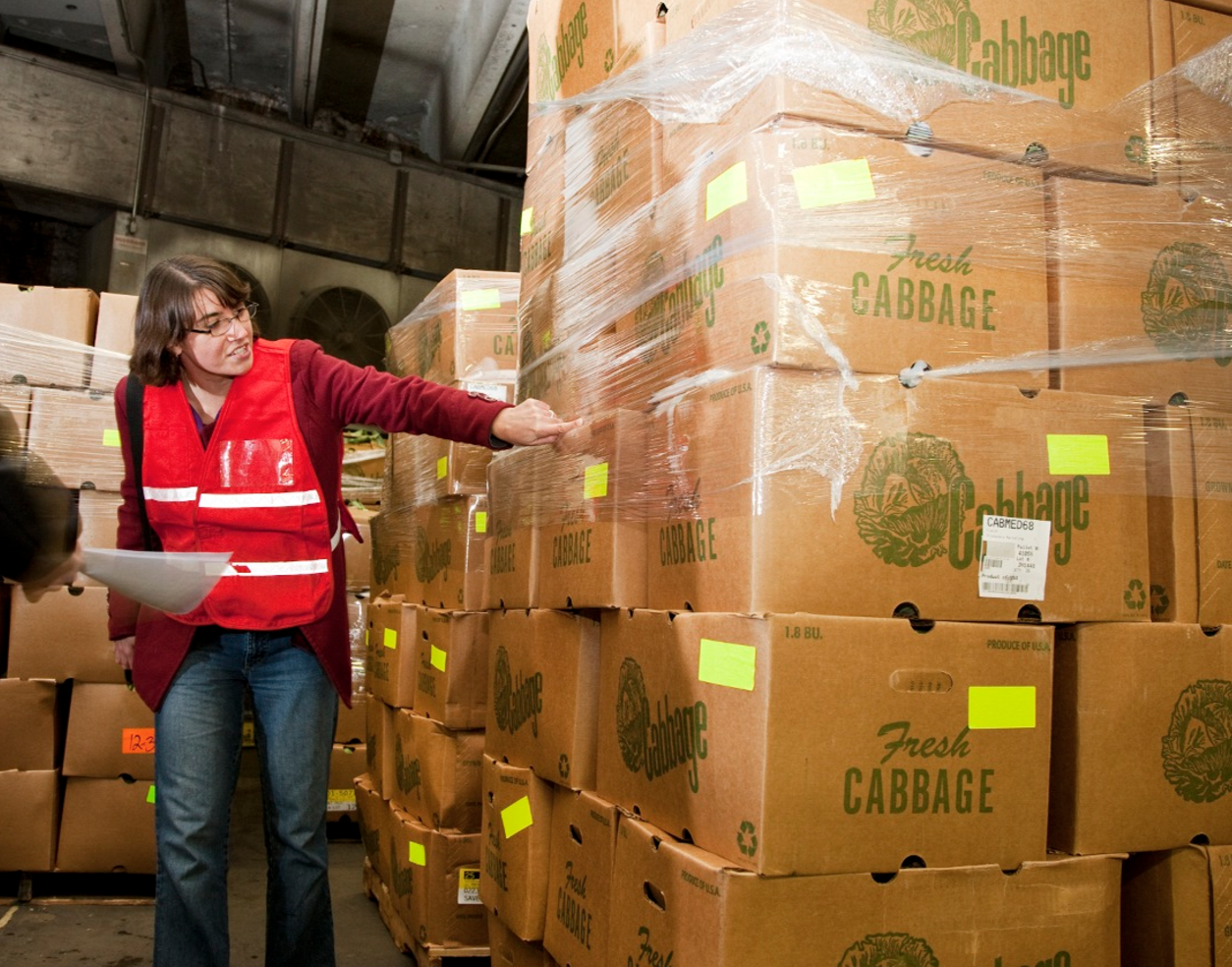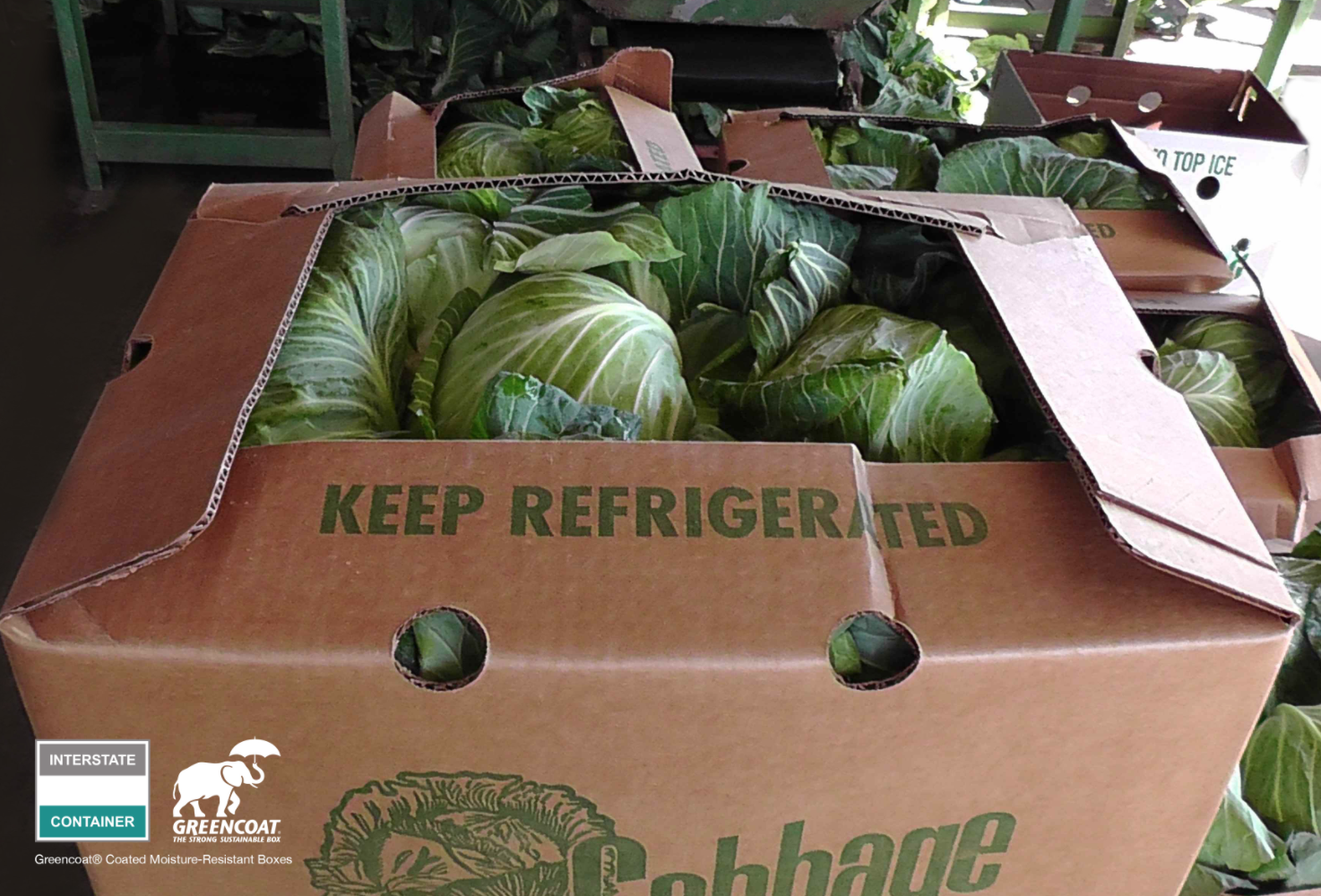In a recent recyclable box trial with Global Green USA, Greencoat® wax-free boxes demonstrated strength and durability, once again, by withstanding a trip from South Georgia to the Midwest. During December 2014, Global Green USA paired up with one of the nation’s largest grocers to test recyclable boxes in packing and transporting up to 40 pounds of heavy cabbage per box across a 750-mile trip from Moultrie, Georgia to St. Louis, Missouri. Results from the trial confirmed that the boxes endured the shipping process without any failures and maintaining product integrity. Many distribution center staff said the sustainable boxes outperformed unrecyclable wax-coated counterparts.
Read the full article from Global Green USA …
Sourced from: http://globalgreen.org/blogs/global/?p=8463
Contact: Lily Kelly
Email: lkelly@globalgreen.org
Tel: +1-646-942-7968
Follow That Box From Georgia to St. Louis
For those of you who have been keeping up with our adventures in recyclable boxes, you know that we have tested FBA-certified water-resistant shipping boxes across the country – from California to the Mid-Atlantic to the Gulf Coast. For this past trip, we dove right into the heart of America, with a trip from South Georgia to the Midwest.
This past December, Global Green worked with one of the nation’s largest grocers, and therefore an influential purchaser, to test recyclable boxes that could be used by their suppliers across the country. The grocer operates over 1,300 locations, so if they decide to switch to 100% recyclable packaging that would make a tremendous impact.
To get things started I took a trip to the farming community of Moultrie, Georgia to test out some recyclable boxes with one of their major cabbage suppliers. We had arranged for our CoRR members, Green Bay Packaging and Interstate Container, to send samples of recyclable cabbage boxes to the facility, and I was headed down there to make sure the packing and shipping went smoothly, and to document whether the boxes got the job done.
When I arrived at the packing shed on a warm, sunny, Southern winter day, the workers were packing box after unrecyclable, wax-coated box of cabbage to be shipped to grocery stores across the country. It’s one thing to hear that over 1.4 million tons of wax-coated cardboard boxes are used every year, but it still takes me by surprise to see the sheer volume of unrecyclable packaging being used at just one packing shed. Clearly, it was time to change things up a bit.
Once I had met up with the facility manager, we grabbed some of the recyclable cabbage boxes that had been shipped in a few days before and gave them to the cabbage packers, who filled them with up to 40 pounds of heavy cabbage heads and stacked them seven layers high on the pallets. Once the pallets were loaded onto the trucks, we watched them take off on their 750-mile trip to St. Louis, Missouri.
A lot of produce items, as well as meats and seafood, are typically packed in unrecyclable boxes coated with paraffin wax. In many cases the boxes are coated to prevent moisture from making the box soggy, but for cabbage the key lies in augmenting the strength of the box itself. An uncoated box would buckle from the pressure of the heavy cabbage heads stacked on top of it, as well as the inevitable moisture of the coolers and shipping containers. But a box with a coating would withstand the rough treatment, and a recyclable coating would mean that the grocer or restaurant receiving the cabbage could sell that box instead of losing money by paying to have it landfilled.
Once the boxes arrived in St. Louis, they were unloaded at a distribution center outside the city. I had flown up the day before and met up with one of the leadership team members at the grocery store chain. We headed out early to take a look at the freshly unloaded boxes, and found that the boxes had survived the shipping process with no failures or product damage. The distribution center staff confirmed that they thought the boxes looked good, and many said they performed better than their unrecyclable wax-coated counterparts.
Now that we have been able to demonstrate that the boxes can handle the challenge of being shipped long distances with a heavy load, the next step will be helping more of these packing facilities switch over to 100% recyclable packaging. With the help of our grocer friends, we are embarking on that journey in 2015. Stay tuned for updates from the field!
About Interstate Container
Interstate Container, a division of Interstate Resources, produces award-winning corrugated packaging in nine plants located in the eastern United States, including Massachusetts, New Jersey, Pennsylvania, Maryland, North Carolina, South Carolina, and Tennessee. With recent growth in the south, Interstate Container supplies poultry processors across the region through its comprehensive network of warehouses, including new warehouses in Jackson, MS, Gainesville, GA and Albertville, AL.
Interstate Container’s manufacturing plants in Columbia, SC and Cambridge, MD produce 100% of the pioneering Greencoat® corrugated packaging in-house without sourcing from third parties.
Interstate Container also produces corrugated retail ready packaging, point-of-purchase (POP) displays, protective packaging and industrial packaging in Lowell and Westminster, MA; Brunswick, NJ; and Reading, PA with sister companies in Asheboro and Greensboro, NC and Greeneville, TN.
Interstate Container is a member of Interstate Resources Inc., a member of INDEVCO Group.
www.interstatecontainer.com
www.greencoat.net





 Live Feed
Live Feed Live Feed
Live Feed